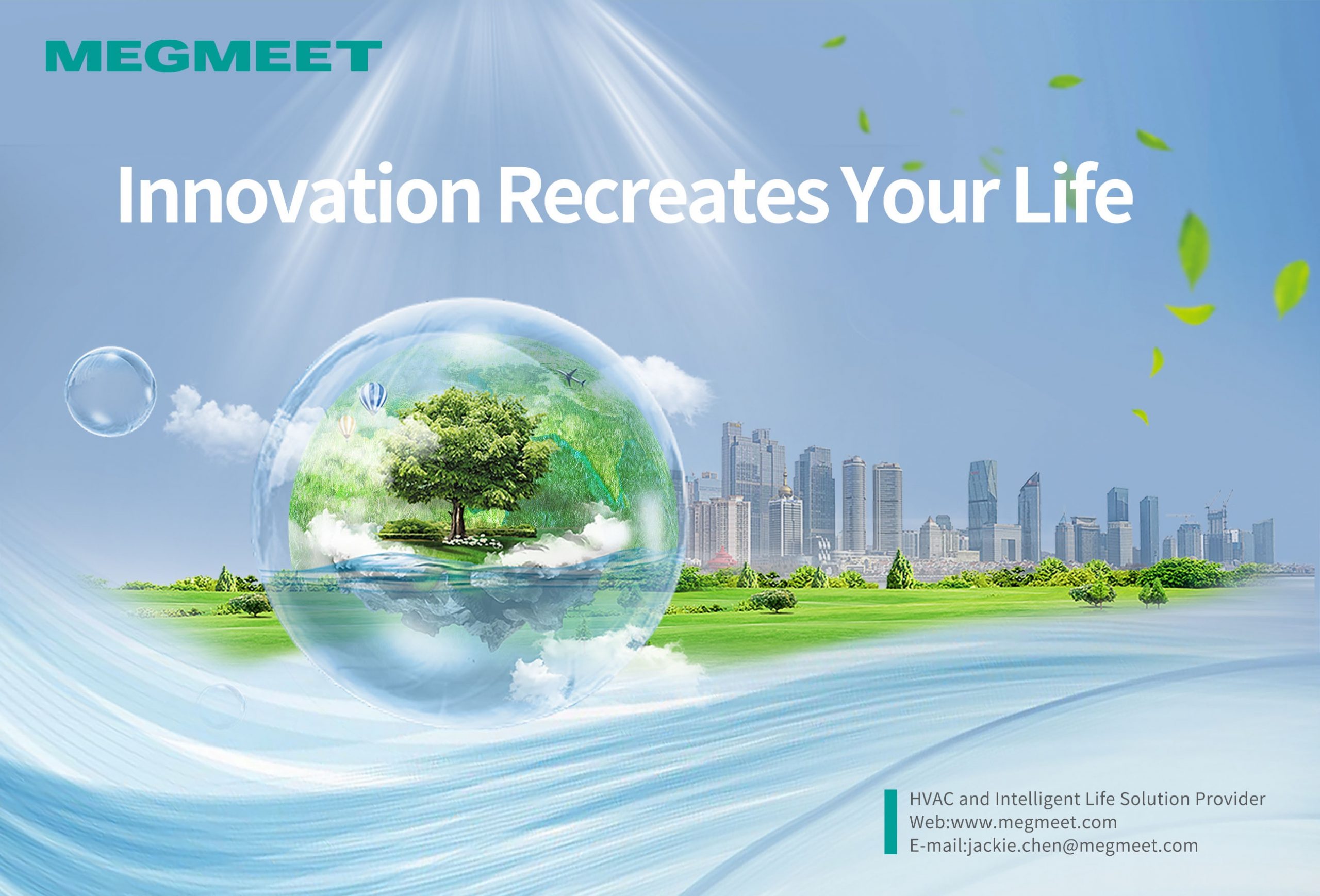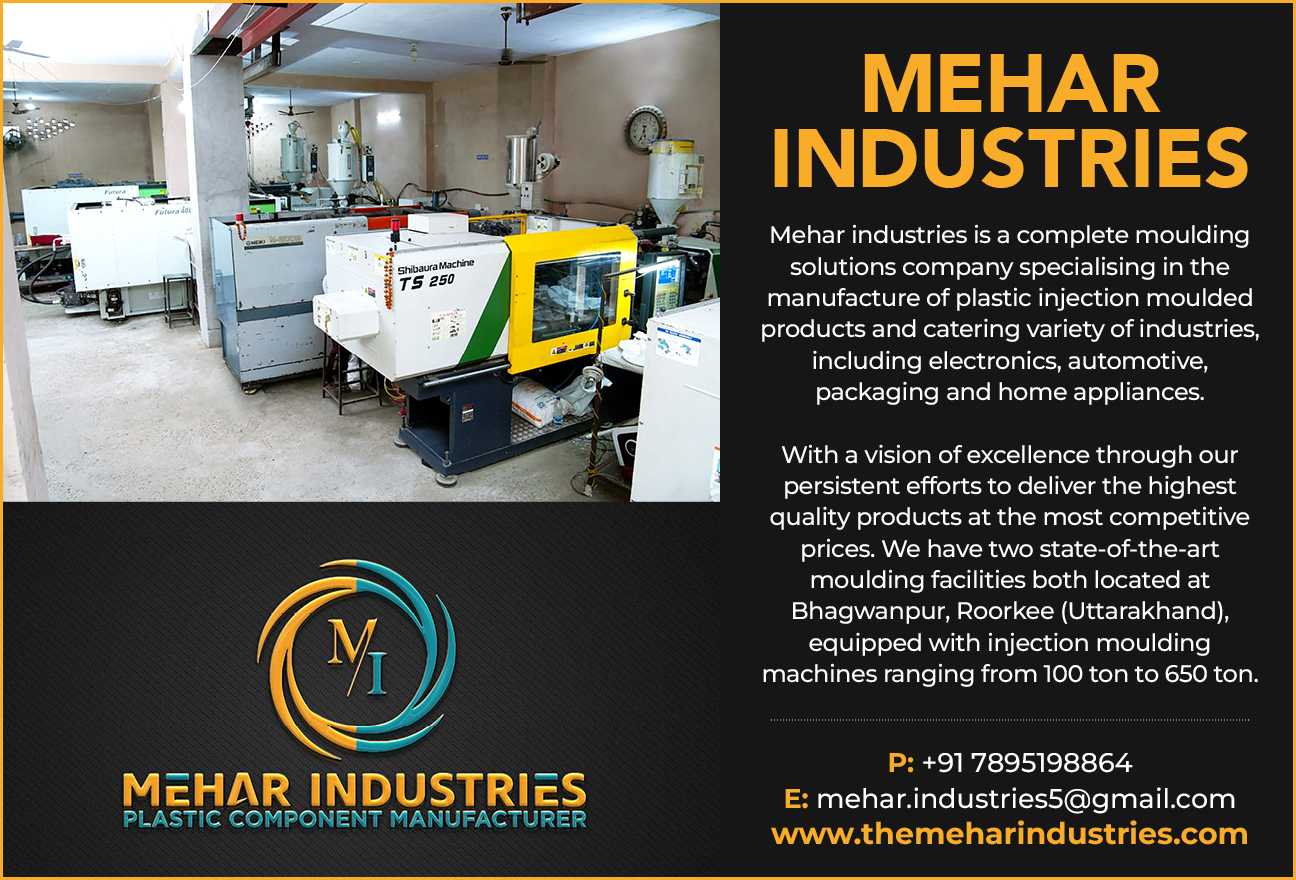Almost a decade after it ceased manufacturing televisions due to an unforeseen market shift, PG Electroplast is once again producing sets as the company taps into growing demand for locally manufactured products. The reinstatement of TVs to the company’s portfolio of cutting-edge products is just the latest phase of an expansion that is delivering strong growth for the Uttar Pradesh-based firm, according to Director Vikas Gupta.
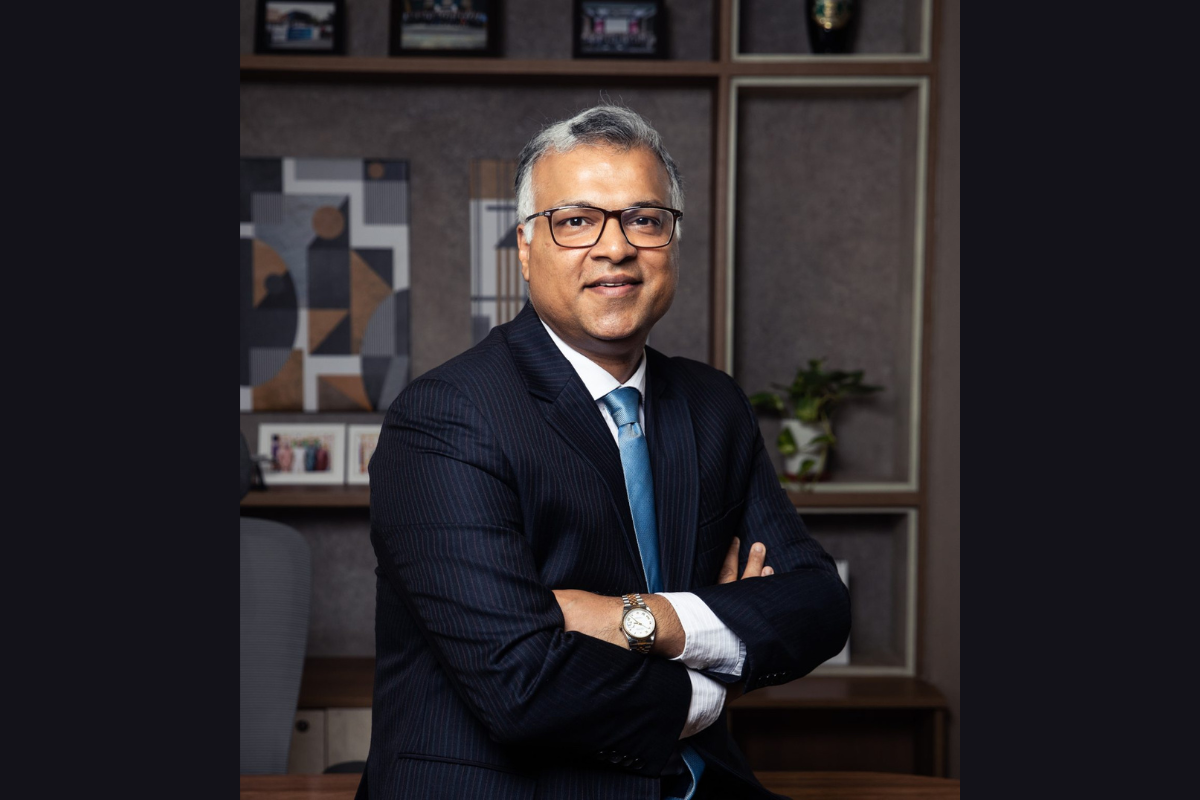
It marks the start of a new chapter for the company, which was founded back in 1977 by his father Promod, an electronics engineer. After more than a decade with the Ministry of Defence, Promod decided to start his own venture, manufacturing components for televisions. His eldest son Anurag joined the business in 1991, followed by Vikas and his twin brother Vishal in 1995.
“We have been part of this business for more than 25 years now. When we started it was a very small business, but with the support of our father and our customers, we have been able to grow this business, diversify, and move into different directions,” Vikas says.
The brothers’ entry into the business marked an “inflection point”, according to Vikas. “We were getting into complete TV manufacturing. Before then we were largely a component manufacturer,” he explains. Although the company started off making black-and-white TV sets, it soon progressed to colour.
“That was a very busy time for us. We were adding new clients, opening up new factories, and we started making televisions for almost all the leading brands – both Indian and multinational, like LG,” he says. VCD player and DVD player manufacturing came next, rounding out the company’s product portfolio.
An unexpected shift
But in 2011-12, the company faced a major setback as market demand shifted from its mainstay of cathode-ray tube (CRT) TVs to flatscreens – a turn of events Vikas admits came as a “rude shock”. “Almost 80 per cent to 90 per cent of our revenue used to come from that single product,” he reflects. “We were not able to anticipate the changing trends in technology.”
Revenue tumbled dramatically as PG Electroplast suddenly ceased manufacturing TVs. But there was a silver lining on the horizon. The company had already started dabbling in the world of plastic moulding and, realising the errors made on the TV front, it started to focus more heavily on this side of the business.
“We also diversified into the automotive industry, bathroom fittings and the electrical industry. We started adding more clients,” Vikas shares. “We had learned our lesson, so we wanted to de-risk the industry and de-risk our customer base, so that if there was any setback we would be able to overcome it.”
Another hurdle arrived in the form of the COVID-19 pandemic, which drove up prices of basic commodities – an issue that is ongoing. “Cost has become a big challenge,” Vikas admits. “We’ve had to start working with alternate materials and alternate designs where we can optimise the cost.”
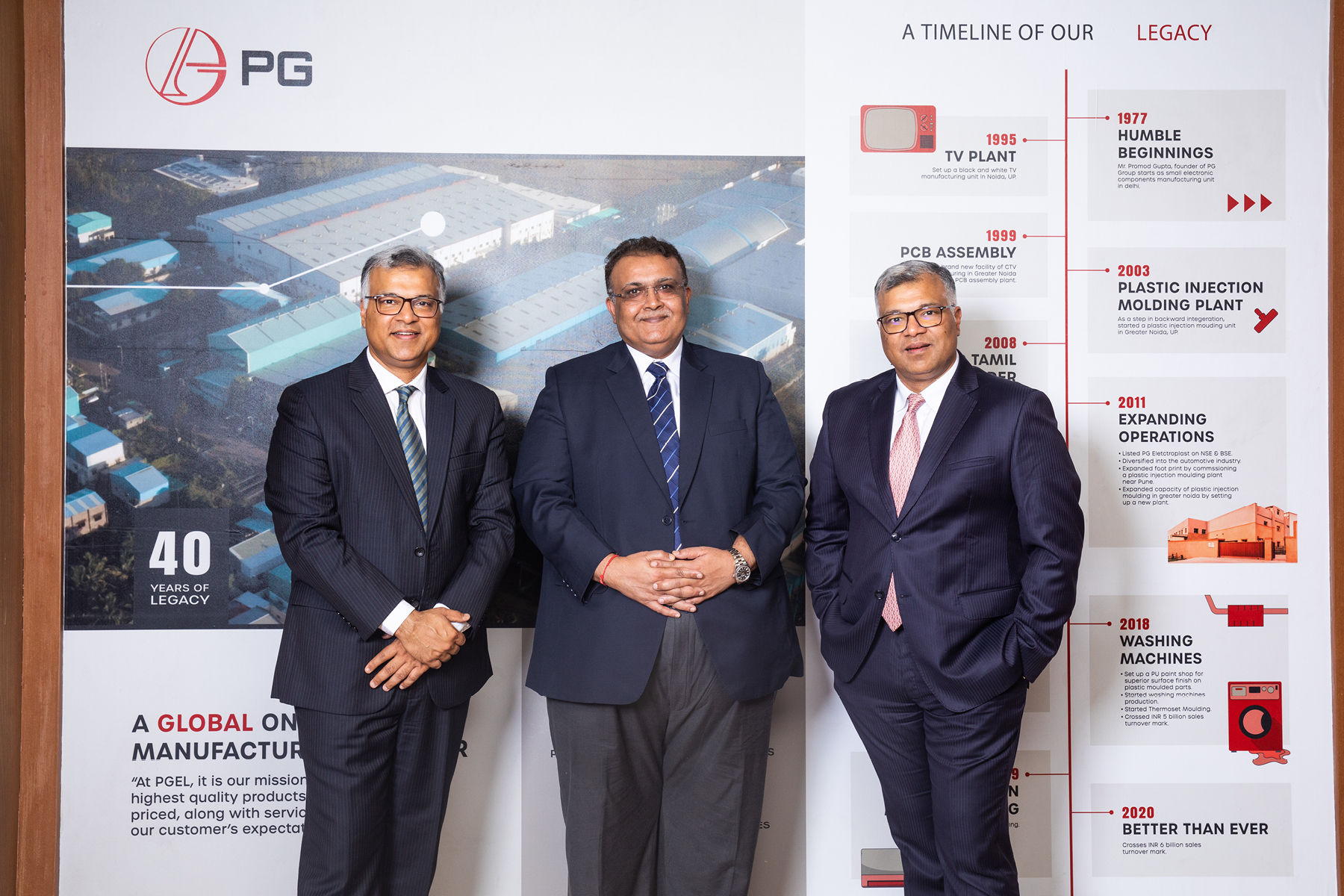
We had learned our lesson, so we wanted to de-risk the industry and de-risk our customer base, so that if there was any setback we would be able to overcome it.
Delays in shipments due to supply chain disruption have also been problematic, prompting moves to reduce dependence on overseas vendors. “We are trying to bring in more supply chain within India,” Vikas explains.
The pandemic also drove home the importance of PG Electroplast’s relationships with its vendors. With lockdowns and shutdowns playing havoc with the production process, long-term understandings the company had established with its business partners became “very helpful”. “We developed that deeper relationship during those tough times,” Vikas says.
“The importance of vendors or partners, as we call them, is paramount,” he stresses. “We try to build strategic relationships with them and seek to support them during the off-season also, where we can utilise their production capacities.”
Vendor financing schemes, training programs, frequent visits and a financing platform are among the measures PG Electroplast has put in place. “We also have a vendor support team where we engage with our vendors to periodically audit them and support them with quality management systems,” Vikas adds.
Return to its roots
Meanwhile, the Indian Government also came up with a plan to help the country emerge from the pandemic’s turmoil. In March 2020 it announced a number of production linked incentive (PLI) schemes, and then in May that year it unveiled the Self-reliant India campaign.
It’s a vision shared by Vikas and PG Electroplast. “Times are very exciting. We are riding a tidal wave for local manufacturing, helping to realise this vision of a self-reliant India,” Vikas says.
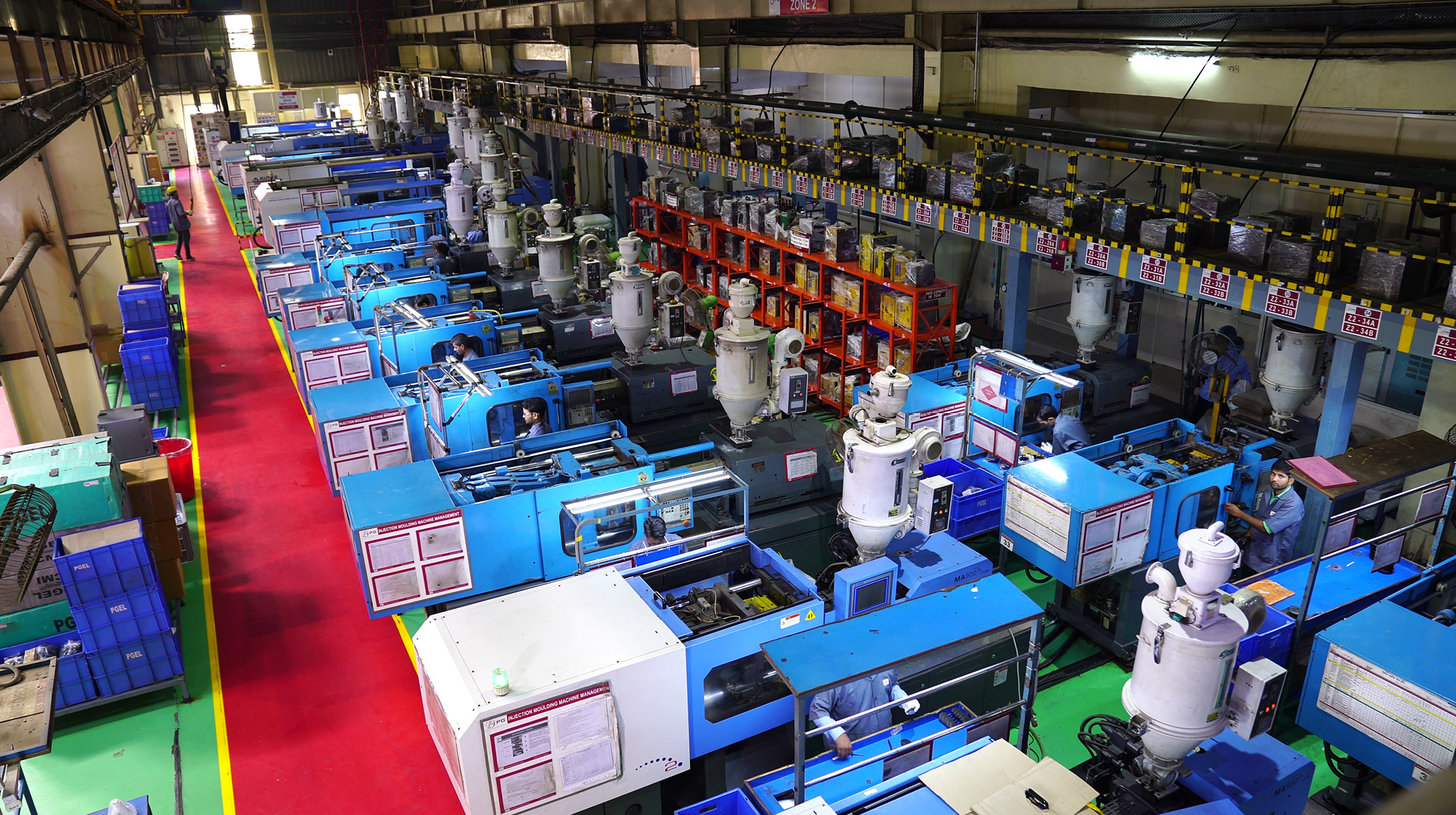
Times are very exciting. We are riding a tidal wave for local manufacturing, helping to realise this vision of a self-reliant India.
With this fresh emphasis on promoting local manufacturing, PG Electroplast suddenly found itself, once again, in a good position. “We saw that the policy landscape was changing and we became convinced that we needed to get into product manufacturing again,” Vikas says. “But this time we made sure we got into those products where the import challenge was minimal, and where plastics would play an important role.”
Fortunately, the company had already developed a wide range of core competencies in plastic moulding. “The first product that we zeroed in on was the air cooler. We developed the complete design of a product for our client Voltas, and we started making air coolers for them in 2015,” he recalls. “That was the first time we started doing a complete product again.”
The second complete product the company decided to tackle was washing machines, which it started manufacturing in 2017. “We developed a design, we made our tools, and we started making an original design manufacturing (ODM) offering for our customers.” In 2018-19, the company decided to expand its ODM business model to include air conditioners (ACs). “By that time, the government was looking at announcing the PLI scheme for AC manufacturing, so we started focusing more on the AC business,” adds Vikas.
A significant investment of around US$40.3 million in the scheme followed, with PG Electroplast establishing a complete vertically integrated AC manufacturing plant in Maharashtra state. “That was a greenfield facility, for which we acquired the land parcel in February-March of 2021,” Vikas says. “We started construction there in June 2021 and were able to start production by January 2022. So we’ve been able to come up with a new production facility for AC manufacturing in record time.”
Full circle
A clear sign that the company has well and truly resurged is the fact it re-entered the TV space towards the end of 2021, and Vikas is optimistic about the prospects. “The times are very exciting right now and there is a renaissance in electronics manufacturing in India,” he says.
“This role offers a lot of opportunities for me to take our company to the next level in the next few years, because we are in the right place at the right time. We are trying to see how we can develop new product lines, new business lines, and how we can engage with many more sets of customers to grow this business manifold.”
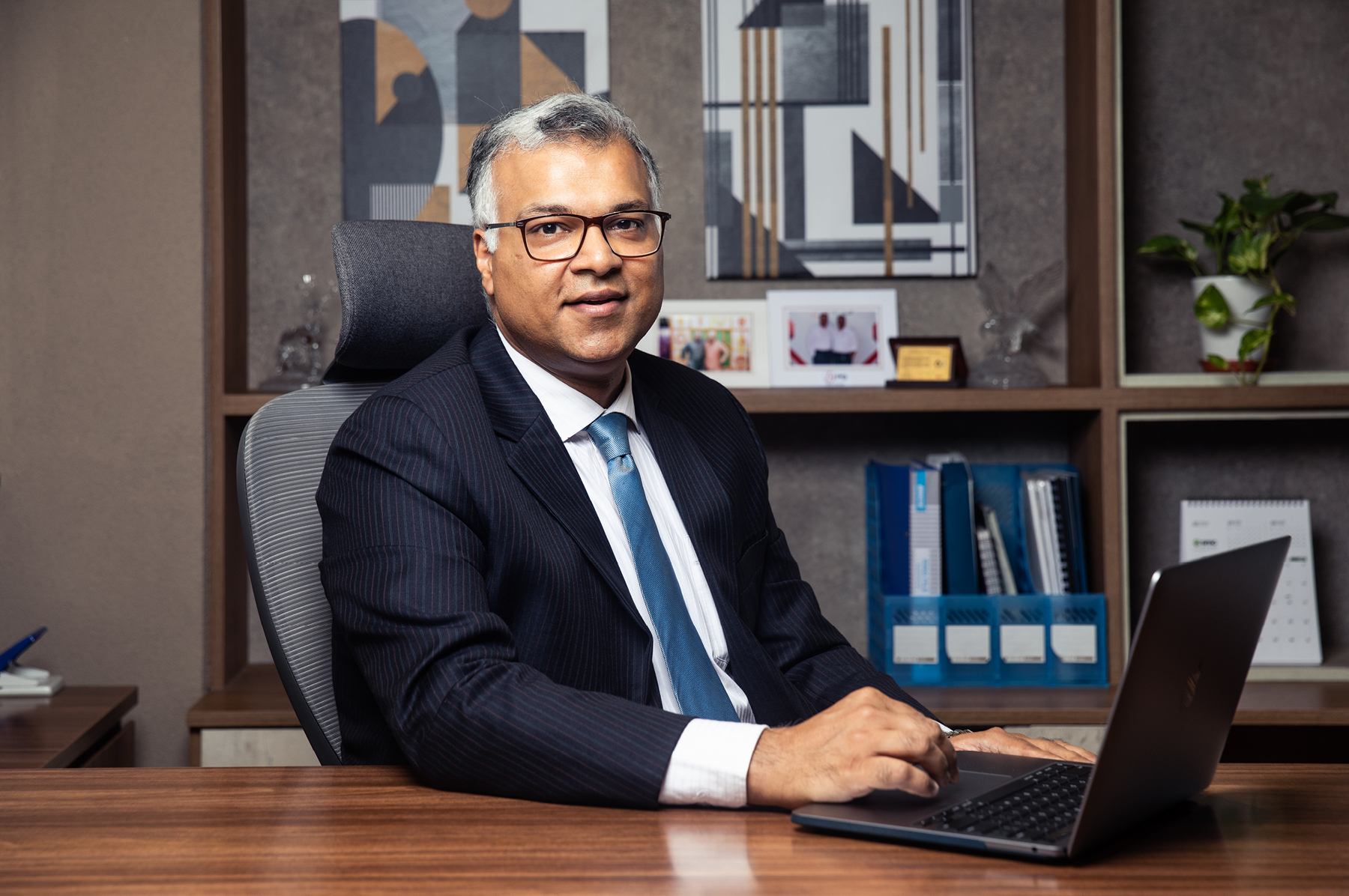
This role offers a lot of opportunities for me to take our company to the next level in the next few years, because we are in the right place at the right time.
The product business currently accounts for around 50 per cent of PG Electroplast’s revenue. Vikas expects this will rise to between 70 per cent and 80 per cent in the next couple of years. “I feel that we will be able to grow our business maybe three or four times in the next four to five years,” he says.
Homing in on the needs and desires of its customers will form an important part of the plan to meet PG Electroplast’s ambitious targets. “We are trying to be more customer-centric – to be a one-stop solution provider to our clients, where our responses should be fast and flexible to meet our customers’ dynamic needs,” Vikas says.
“We are trying to make our organisation agile and see how we can cover the customers’ needs in the minimum possible time. We see the consumer electronic manufacturing business growing many times over, and we want to be a sizeable, dominant player in this industry in the coming years.”
Research and development will also play a big role in helping the company achieve this goal, with PG Electroplast harnessing the latest technology to create “differentiated” products that stand out in terms of energy efficiency, which is of increasing importance to consumers.
For Vikas, success is about taking care of the interests of all of the company’s stakeholders – its employees, its vendors and its customers. “If we are able to excite them with new things, new workings, then I think we can measure our success in those terms,” he says.
“Success is not a destiny, it is a journey. Because we have to keep on evaluating our responsibilities, how we are working, and we have to keep benchmarking on the latest practices and how we can grow our business sustainably.”
Going forward, that means minimising the company’s carbon footprint, a mission Vikas describes as a “major focus”. It is also incorporating renewable energy where possible, with most of its electricity now being generated by solar power.
This ability to react to shifting dynamics in the market is something that Vikas is confident PG Electroplast has mastered, securing its future. “Success is something that is quite fluid,” he insists. “The goals keep on shifting.”

